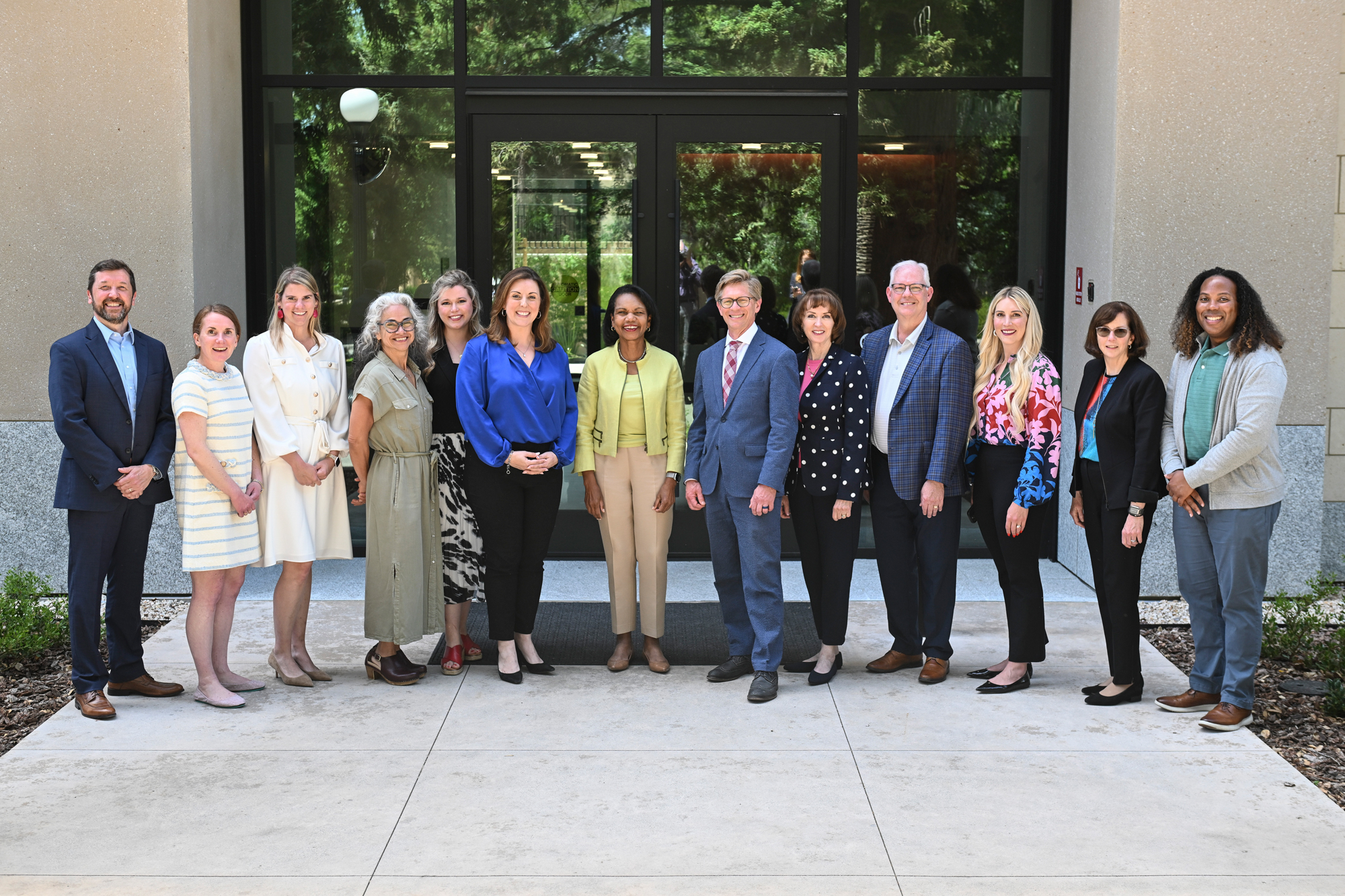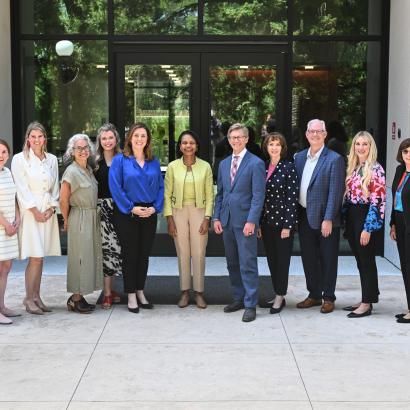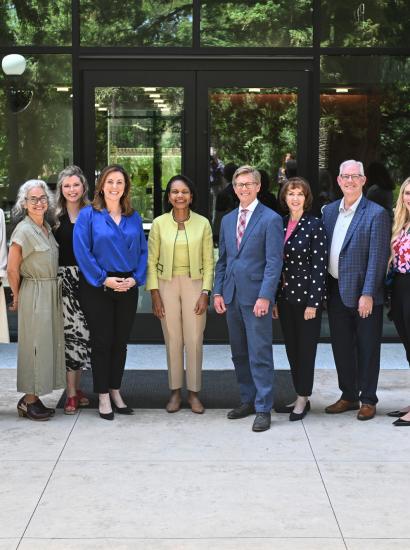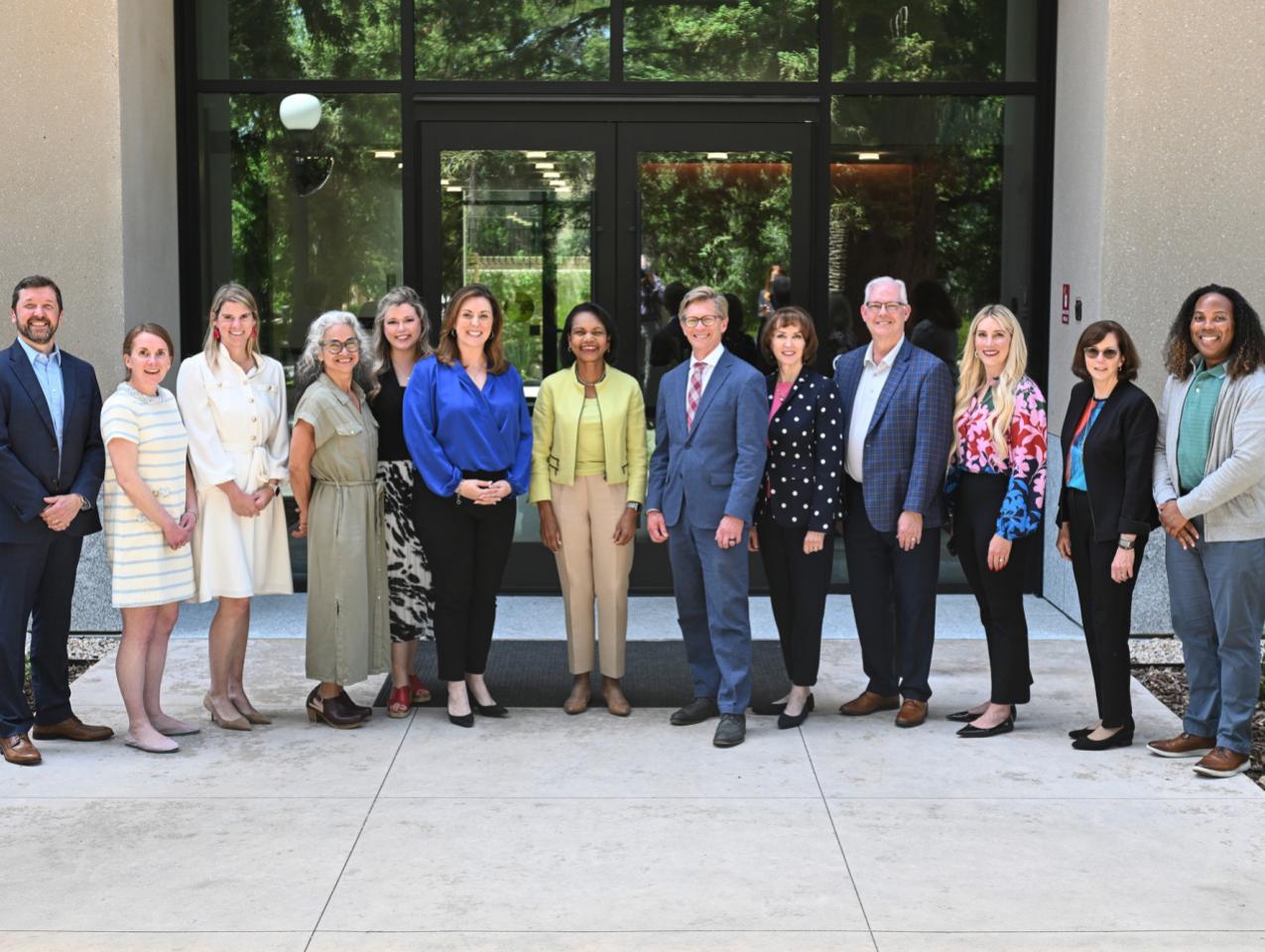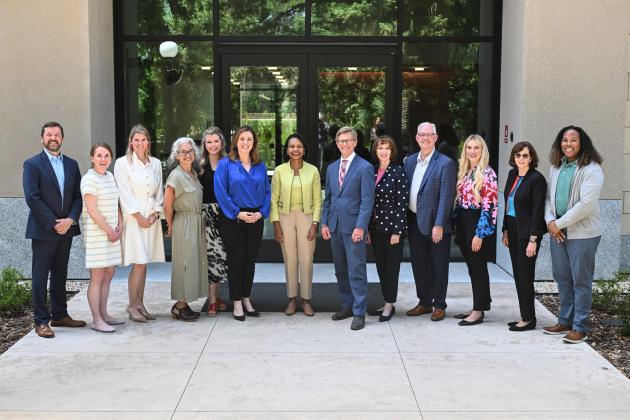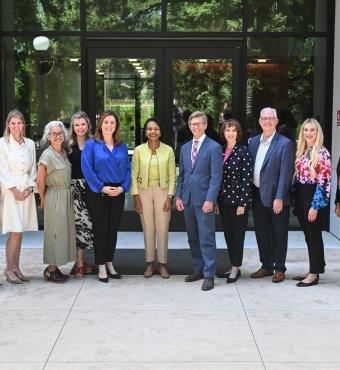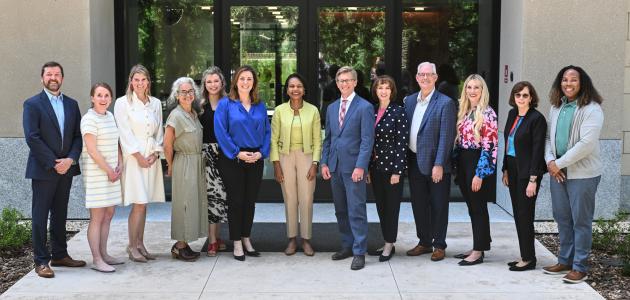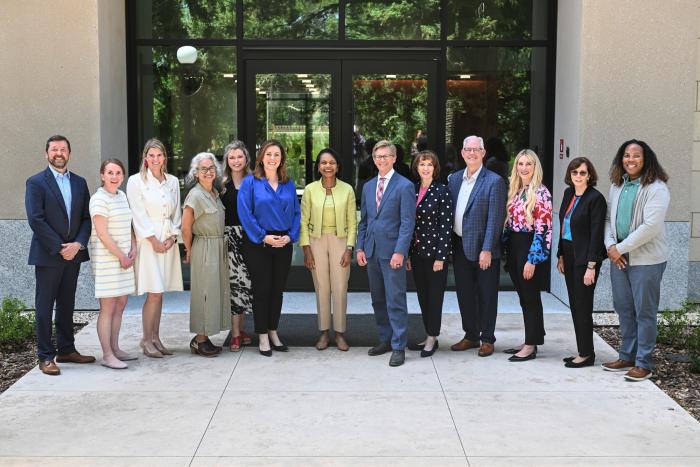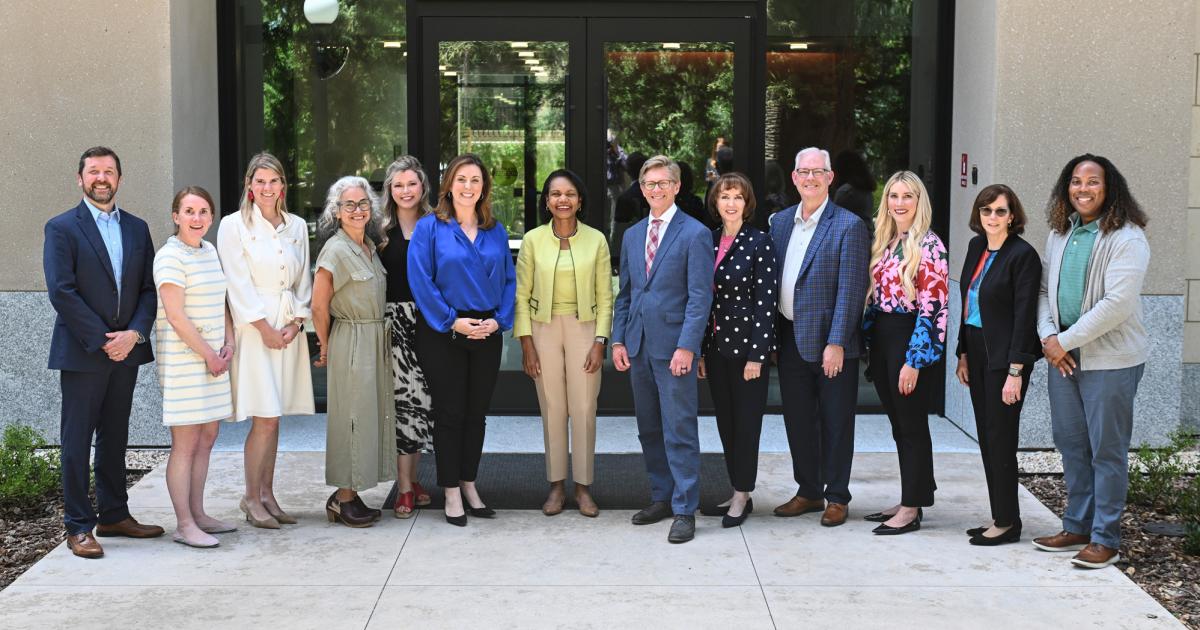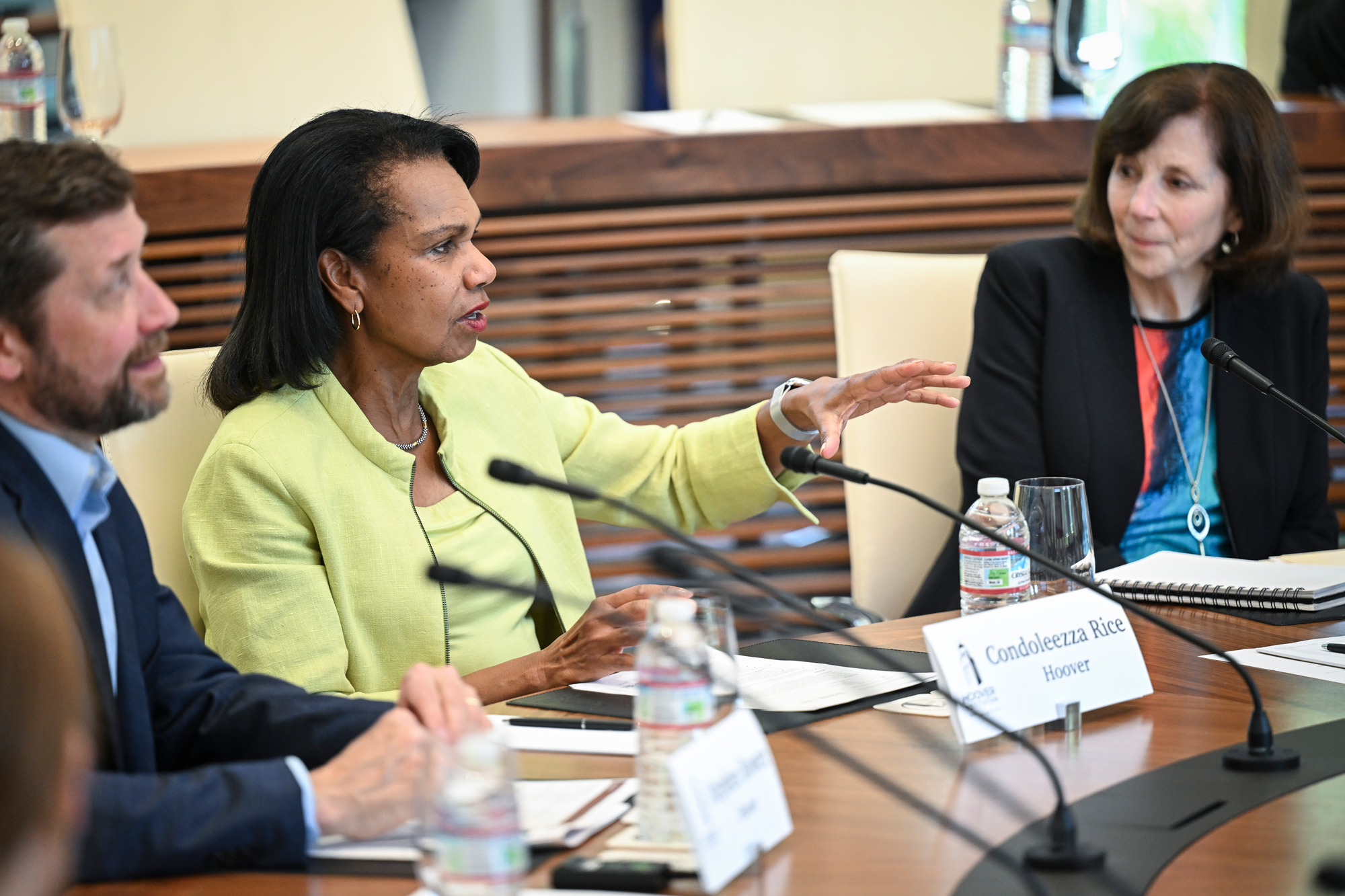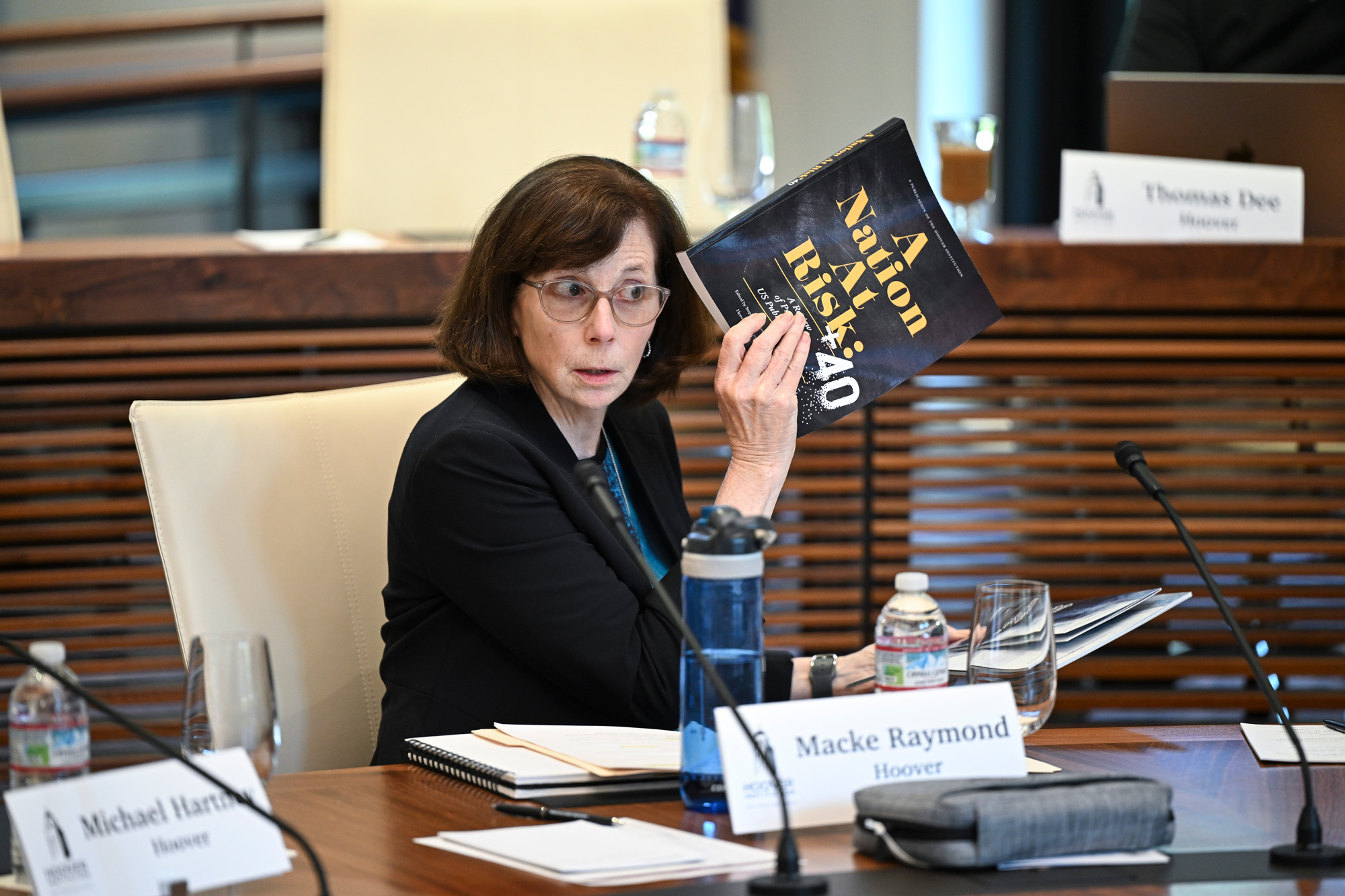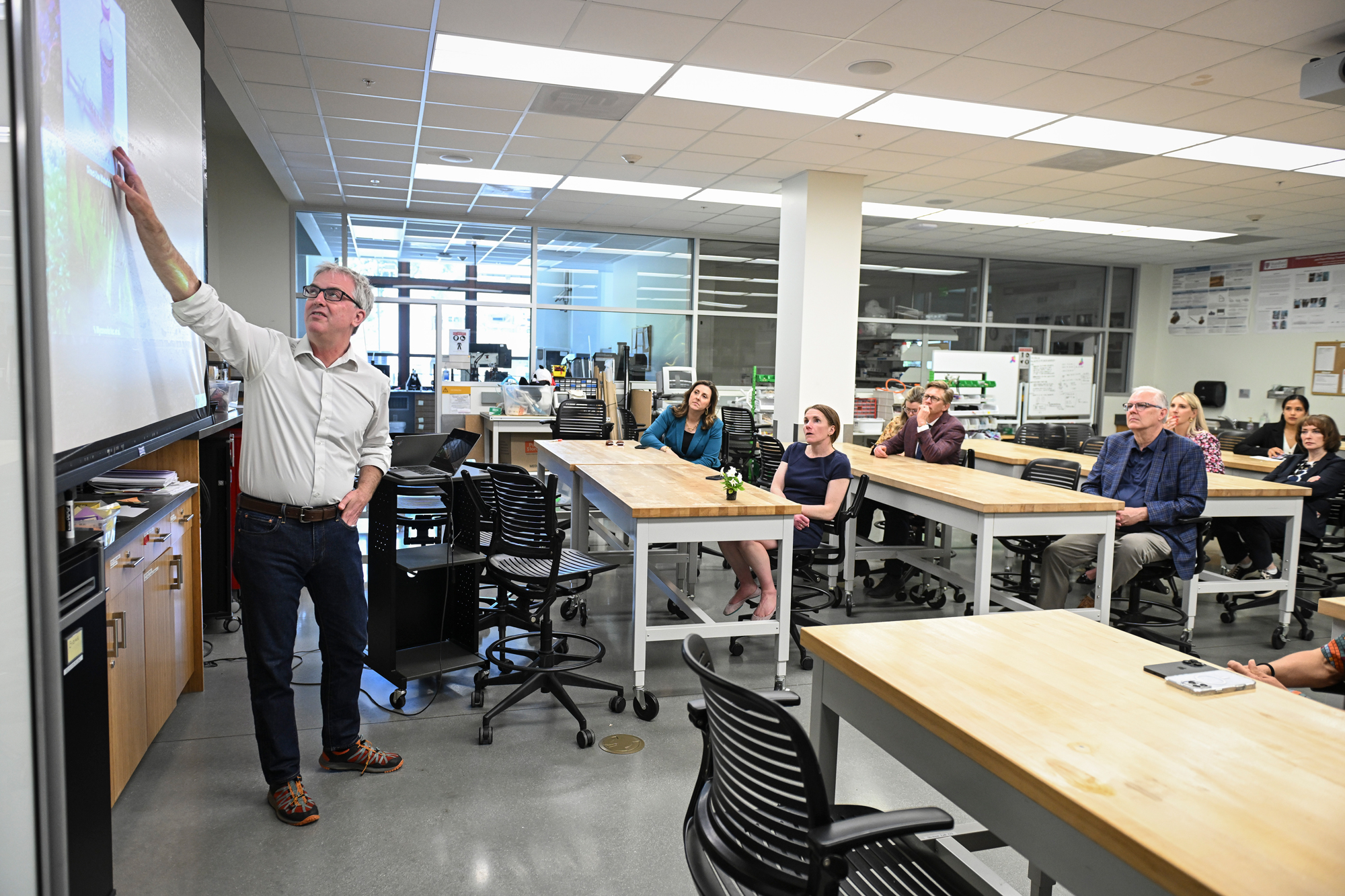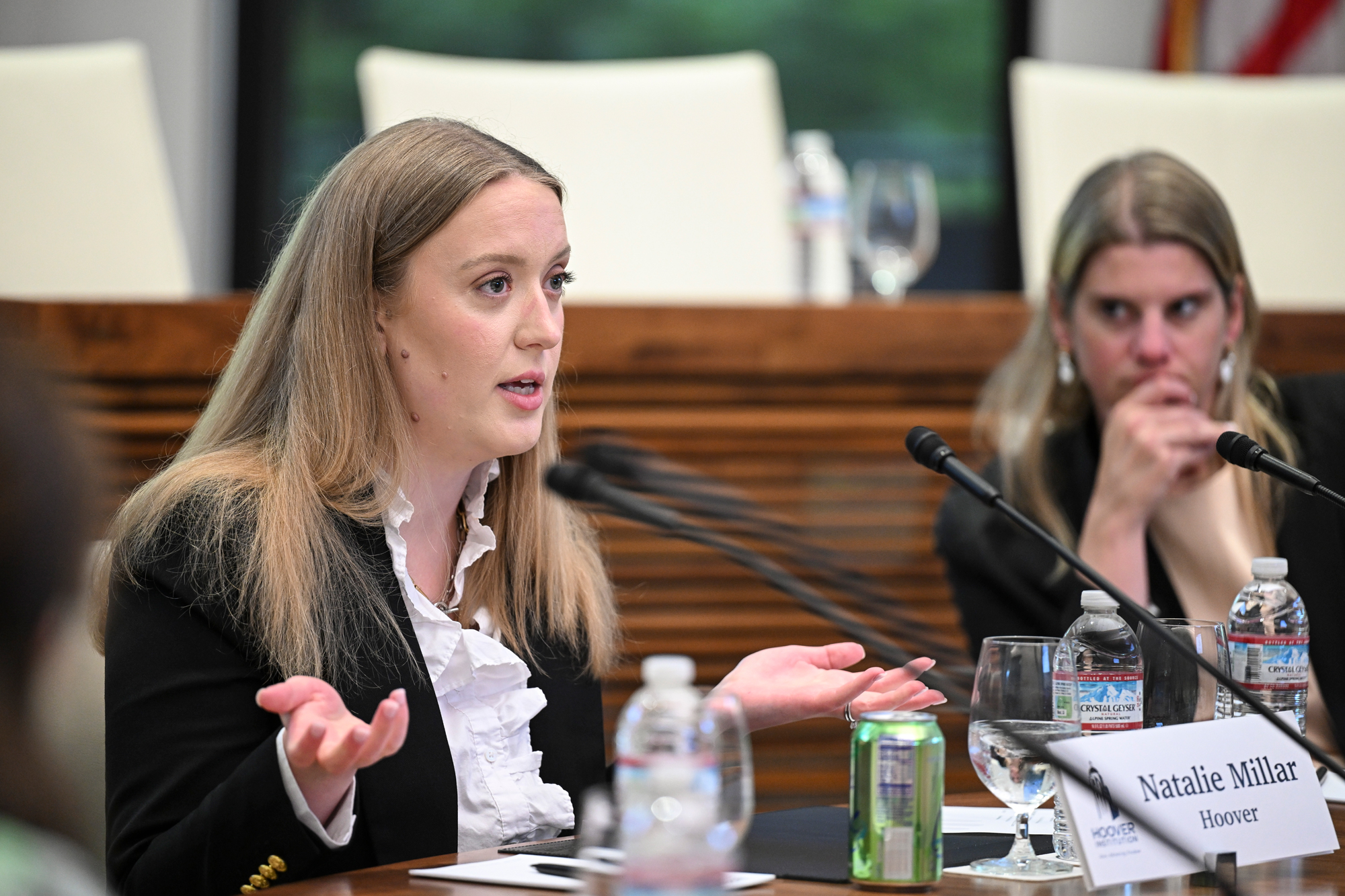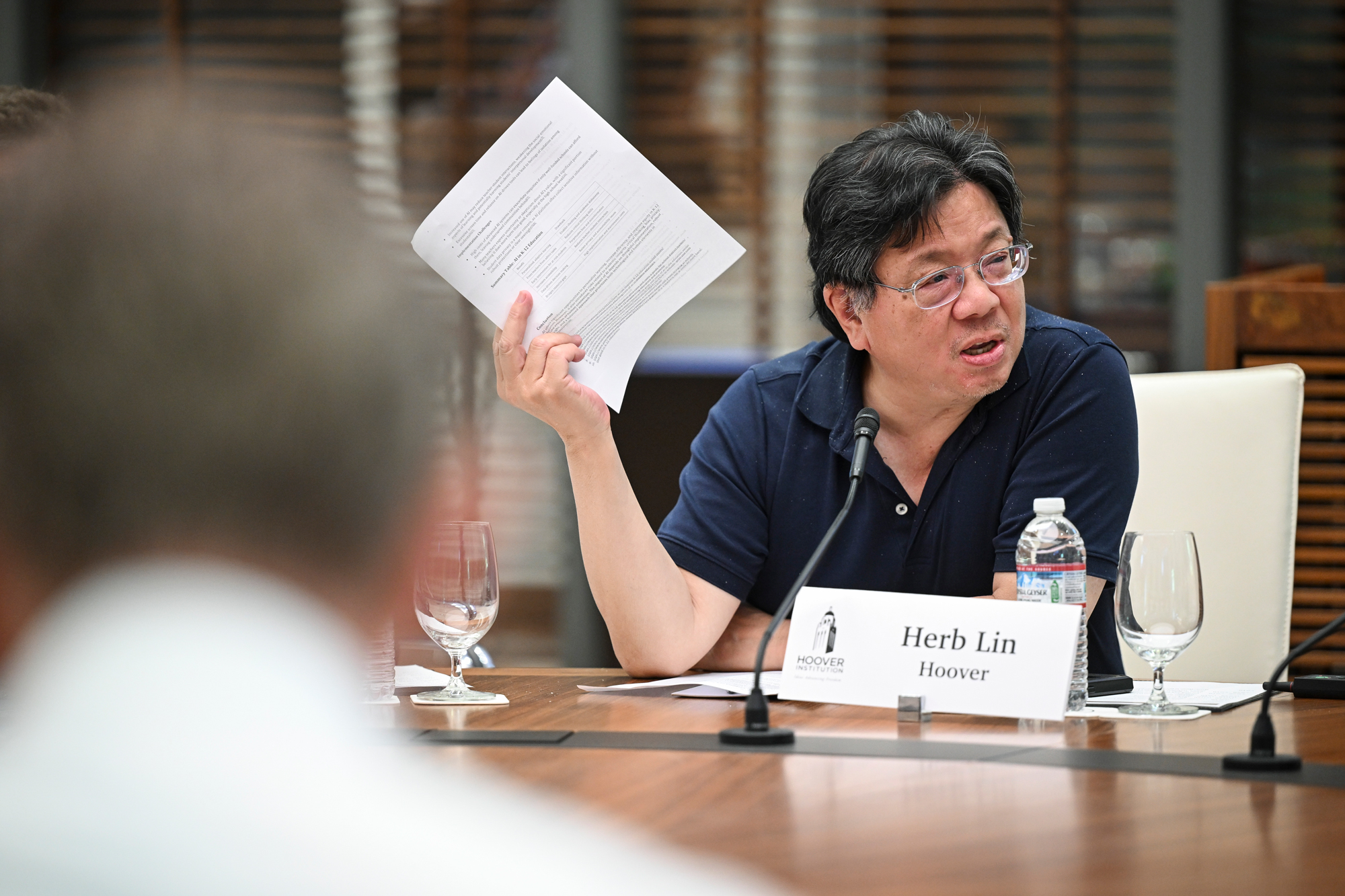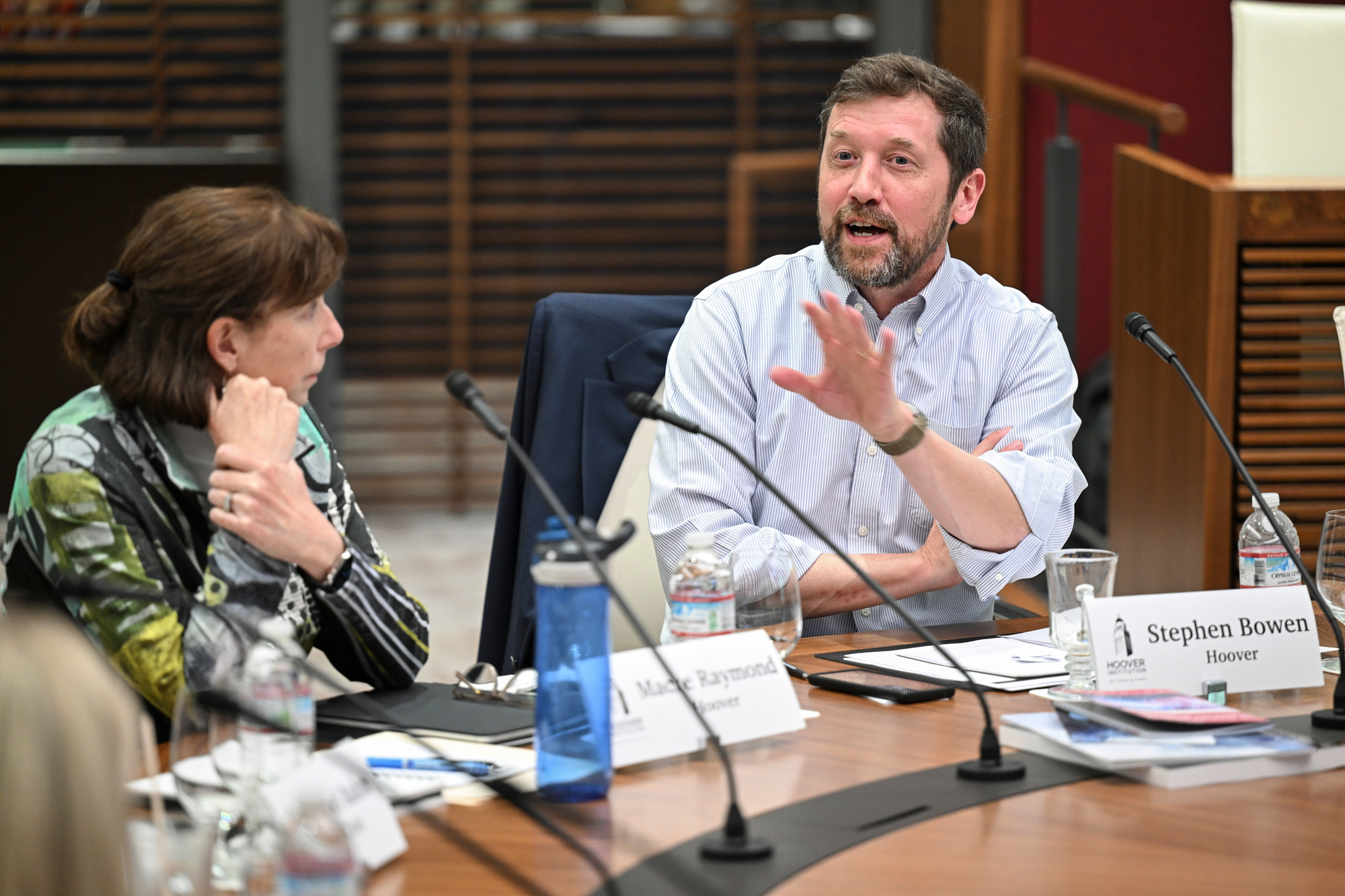Hoover Institution (Stanford, CA)—State education secretaries from across America, along with representatives from the Council of Chief State School Officers, joined Hoover fellows on May 15 and 16, 2025 for a series of topical briefings with a focus on how to reinvigorate K–12 education.
The gathering is part of a series of events put on by Hoover’s State and Local Leadership Forum, organized in part to conduct outreach with legislators at the federal and state level as well as municipal and education sector policymakers and public servants.
The goal is to equip decision-makers with the latest scholarship as they deal with a myriad of challenges facing the sector in the wake of the COVID-19 pandemic and its related disruptions to learning.
At the forum, Hoover Institution Director Condoleezza Rice addressed the state education leaders, speaking about her lifelong work as a scholar and educator. She emphasized the need for US K–12 education policy to reflect the needs of all American children and called on state leaders to undertake the kind of systemic transformation of the nation’s schools proposed by Hoover’s Education Futures Council, which she chaired.
Distinguished Research Fellow Margaret (Macke) Raymond followed Director Rice, focusing her remarks on the need to make innovation and improvement the central focus for school, district, and state leaders.
Bruni Family Fellow Michael T. Hartney spoke to the leaders about the impact school board composition, elections, and school district organization have on the performance of schools. He was followed by Tom Schnaubelt, assistant director of Hoover’s Center for Revitalizing American Institutions (RAI), who described for attendees Hoover’s commitment to improving the teaching of civics, part of RAI’s efforts to reverse the trend of Americans’ declining trust in institutions. Joining him was Senior Fellow Eugene Volokh, who discussed First Amendment issues in public schooling.
Senior Fellow Thomas S. Dee shared his research on new approaches to boost student achievement, the continuing problem of chronic absenteeism in US schools, and ways to increase computer science uptake among underrepresented groups.
Reinforcing calls for large-scale, systemic transformation of America’s schools, Senior Fellow Eric Hanushek shared his research on the cumulative earnings losses sustained by pupils who lived through the COVID-19 pandemic. Echoing his earlier research, Hanushek warned of the profound impact on future state economies that will result without a determined effort to address these learning losses.
Senior Fellow Drew Endy, director of Bio-Strategies and Leadership at Hoover, took the education leaders to Stanford’s Shriram Center for Bioengineering and Chemical Engineering, where he demonstrated the exponential possibilities offered by synthetic biology and biomanufacturing.
Closing out the day, Styslinger Fellow Natalie Millar presented her latest research, which examines customized job training efforts underway in Tennessee, with lessons for strengthening the connection between K–12 and a prosperous career. With technology in the classroom remaining a hot topic among educators, attendees then heard from Herb Lin, Hank J. Holland Fellow in Cyber Policy and Security and editor in chief of the Stanford Emerging Technology Review (SETR), about the future of artificial intelligence as well as risks posed by the proliferation of AI and other emerging technologies discussed in the SETR report.
Hoover’s K–12 education team closed out the conference by returning to the theme of systemic reform as outlined in the Education Futures Council’s report “Ours to Solve—Once, and For All” and committed the Institution to ongoing support for state leaders as they work to address the challenges confronting the US K–12 system.







